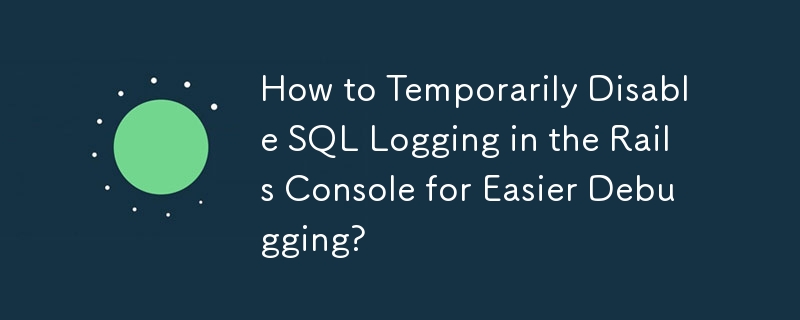

When executing commands in the Rails console, SQL query logging can clutter the output, making it difficult to read and debug. Fortunately, there is a straightforward way to disable this logging.
To suppress SQL query logging in the console, you can assign a new value to the ActiveRecord::Base.logger object. Here's how to accomplish it:
Disabling Logging:
old_logger = ActiveRecord::Base.logger ActiveRecord::Base.logger = nil
The old_logger variable stores the original logger for later use. By setting ActiveRecord::Base.logger to nil, you effectively disable all SQL query logging.
Re-enabling Logging:
Once you have completed your debugging session, you can restore SQL query logging by assigning the original logger back to ActiveRecord::Base.logger:
ActiveRecord::Base.logger = old_logger
This will re-enable SQL query logging, providing a detailed record of your queries for future reference or diagnostics.
Adjusting Log Level:
As a more nuanced approach, you can also adjust the log level of ActiveRecord::Base.logger to selectively suppress or enable different levels of logging information. For example, setting the log level to 1 (or Logger::INFO) will only log SQL queries with INFO or higher priority.
ActiveRecord::Base.logger.level = 1 # or Logger::INFO
Remember to set the log level back to the original value after completing your debugging session to avoid affecting other aspects of your application's logging.
The above is the detailed content of How to Temporarily Disable SQL Logging in the Rails Console for Easier Debugging?. For more information, please follow other related articles on the PHP Chinese website!




